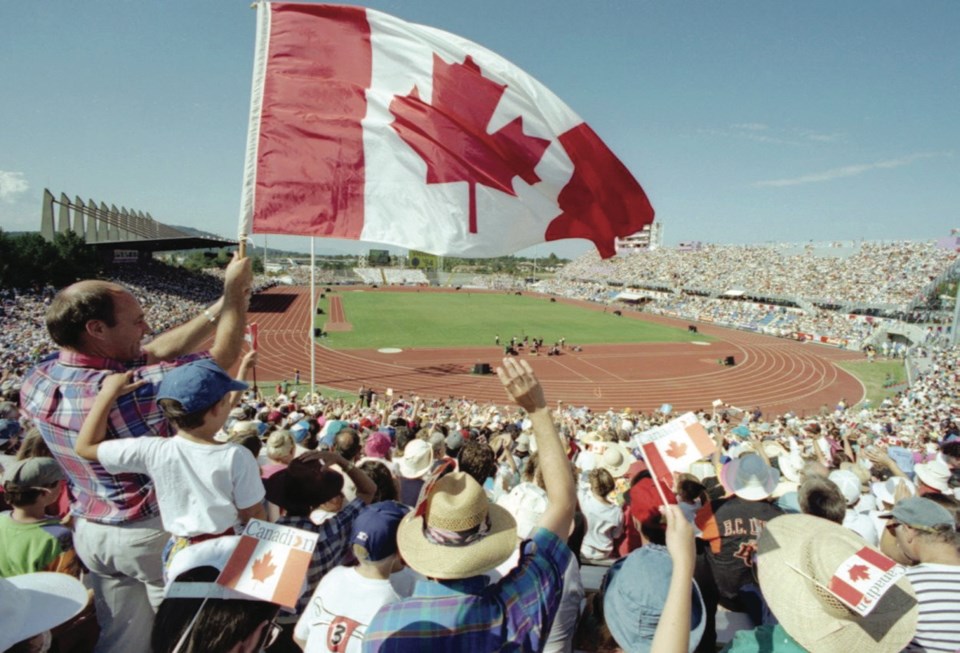Greater Victoria is out of the race for the 2022 Commonwealth Games after the provincial government said Thursday it would not support the bid.
“We’ll just have to back away. We can’t do it without the province,” said David Black, chairman of the bid committee and a local businessman.
The committee asked the federal and provincial governments to each provide $400 million to fund the games. Local municipalities were asked to supply $25 million in cash and in-kind services.
Black said the funding would have been an investment in needed infrastructure, such as housing and sports facilities, as well as be an economic boost.
“It’s disappointing. We had a great opportunity here,” he said. “This won’t come again.”
Black was part of the organizing committee when Victoria hosted the Games in 1994.
After Durban, South Africa, said it could not finance the 2022 event, Black said he saw a unique opportunity to make the case for Victoria to be the host.
Kuala Lumpur, Malaysia, and the U.K. cities of Liverpool and Birmingham are submitting proposals.
The Victoria committee was issued a deadline of Sept. 30 to submit its bid book and released its business plan last week.
Black said he understood B.C. Finance Minister Carole James was in a difficult position to consider the bid, with the new government still getting established. He had planned to seek a deadline extension from the London-based Commonwealth Games Federation so the province could have more time to consider the bid.
But James released her ministry’s decision before that could happen, citing the potential for cost overruns as a key factor. The government also has other priorities, she said.
“While we appreciate the energy and passion of the bid committee, we cannot make a commitment to support the bid through direct funding, nor can we provide a financial shortfall guarantee,” James said in a statement.
She said her ministry analyzed the bid and saw “that too many details remain unknown to fully understand the costs, obligations and risks associated with hosting such a large-scale event.”
These include commitments from all levels of government, revenues, venue locations, security costs and emergency response, as well as additional costs related to transportation and health services because of an influx of visitors.
“Our government was elected with a very clear set of priorities. Those priorities are helping communities impacted by the wildfires and those suffering from the opioid crisis, focusing on making life more affordable for British Columbians and adding to long-term economic growth throughout the province,” James said.
James suggested B.C. might bid for the 100th anniversary of the Commonwealth Games in 2030 but Black said that would be highly unlikely. If Canada did get the Games that year it would likely be in Hamilton, Ont., where they were first held, he said.
Stan Bartlett, a retiree who operates the grumpytaxpayers.com advocacy group, said he was happy to hear the games bid was halted.
“I’d like to compliment Ms. James for her cautious and prudent analysis. In the end, she saw the same numbers we did,” said Bartlett, adding the the closed-door decision-making irked him most about the proposal. He said if the infrastructure projects included in the bid have merit they should be funded appropriately. “It shouldn’t have to be a billion-and-a-half dollar extravaganza to justify these projects,” he said.
Public and municipal support for a Victoria Commonwealth Games bid was mixed from the get-go. Most municipalities said they supported the idea but wanted to consider the business plan before committing. Langford Mayor Stew Young was enthusiastic about having several events hosted in the West Shore but Esquimalt declined to endorse the bid.
On Twitter Thursday, Saanich Coun. Colin Plant posted: “While I enjoyed being Klee Wyck in the 94 games, there were too many hurdles to overcome for 2022. B.C. Govt decision isn’t a surprise.”
Klee Wyck was the official mascot of the 1994 Commonwealth Games in Victoria, a killer whale with the nickname given to Emily Carr by Island First Nations — which means “laughing one.”
Several local athletes endorsed the Games bid, including former Olympians Silken Laumann and Simon Whitfield, who were featured in a video released by the bid committee this week.



